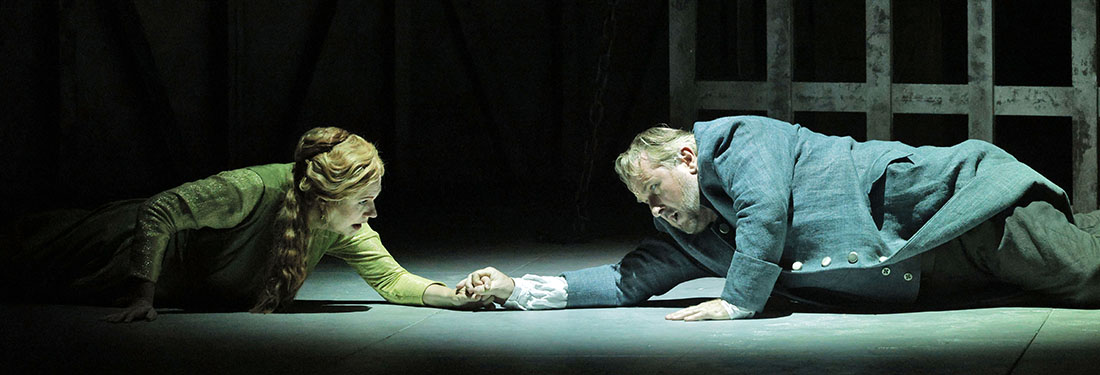
The hunt that gives its title to The Hunt, a witty and beautifully sung new opera with book and music by Kate Soper, is not really a hunt at all: “hunt” implies pursuit, and the three figures at the heart of this piece are not going anywhere. Just the opposite—Fleur, Briar, and Rue, played respectively by the sopranos Brett Umlauf, Christiana Cole, and Hirona Amamiya, are, we are told, three virgins, trapped by their imperialist king into acting as bait to attract a unicorn. Far from pursuit, the virgins are stuck hanging around, waiting on the mythical beast’s appearance. But will the beast, in fact, appear? The virgins don’t seem so sure, although they gamely livestream updates for the court and sing enticing unicorn songs, whose texts mostly date to the medieval period.
In an interview printed in the program for The Hunt, Soper described the process of the opera taking shape during the pandemic; three-part madrigals, written for the brief YouTube videos she made “to stay sane” during lockdown, grew to become a twenty-minute song cycle and then the ninety minute drama that premiered on Thursday at Columbia’s Miller Theatre.
The finished product bore clear traces of this genesis, not only in its plot, which largely concerned the intense boredom and transformative self-discovery of three women who are stuck in place, but also in its form, which at every turn drew plenitude from sparseness. With no orchestra, the performers’ voices were supplemented only by what they themselves could provide—a ukulele played by Umlauf and Cole and a violin played by Amamiya—and by disconcerting digital incursions—like the ominous synthesized tone that crescendoed under missives from the king or the spurts of static that ended scenes.
Like a COVID lockdown pod of three (four if you count the stable boy passing Rue riddles in her boxed lunches), the virgins have only each other and the remote, dislocated presence of social media to populate their world, a world in which their sole hope is that today will somehow be different from yesterday.
Their sparse accompaniments aside, this world contained only the voices of Umlauf, Cole, and Amamiya. But the depth and breadth of The Hunt’s music belied the minimalism of its materials. Soper in her composition seemed intent on exploring every possible avenue opened by three soprano voices in combination: madrigal-style three part harmony, tone-clustered dissonance, chants and drones, incomprehensible overlapping chatter—even glossolalia, wild trilling, ululation.
This expansive vocal texture proved to be also remarkably expressive, establishing a clear and self-consistent musical language in which changes in the music cued palpable shifts in the opera’s tone. When, for example, a sustained dissonant phrase resolved abruptly into a cheery, heraldic major key, it was so distinctly and legibly sarcastic a musical gesture that it was impossible not to laugh out loud.
In addition to the humor and sensitivity of Soper’s compositions, the music’s expressiveness owed much to the performances of Umlauf, Cole, and Amamiya, all of whom were fully committed to The Hunt’s self-aware, slightly absurdist tone. All three singers had excellent comic timing and strong, distinct voices. Amamiya, as the witchy apothecary Rue, had the trio’s darkest voice, with a muscular heft befitting Rue’s insistent self-sufficiency. Brett Umlauf, as the prim, femme influencer Fleur, had the lightest, most musical theater-esque voice of the group, which she used with the flashing agility of a paring knife. As the librarian-scholar Briar, Christiana Cole’s voice had a wonderfully open and expansive middle register that balanced beautifully against Amamiya’s darker and Umlauf’s brighter tones.
Because Soper’s music was able to express so much so efficiently, the show’s relative weak point was its non-sung material; the dialogue wasn’t badly written or badly delivered, but it didn’t have the music’s magical economy. As a result, spoken scenes couldn’t help but feel slower paced and less vital. This was particularly the case as the piece reached its conclusion, and seemed almost obligated to provide explicit plot points in dialogue rather than song.
In general, The Hunt shone when it resisted the impulse to over explain or world-build too explicitly. The combination of quasi-medieval setting and digital technology, for example, used the projections designed by Camilla Tassi to show the three virgins live-streaming their vigil on a platform that looked like Instagram-meets-illuminated-manuscript. Not once did I question why these medieval virgins had phones: it was funny and felt true, so it didn’t need any explanation. As the opera drew to its conclusion, a little more of that same trust in the audience to follow Soper without being led would not have gone amiss.
Perhaps the hesitancy of The Hunt’s closing scenes—its slight tendency to talk in circles—was also a function of its genesis as an opera written during lockdown. In the end, the trio set out to live a new kind of life: unplugged from the king’s digital surveillance and free of the court’s relentless scrutiny of their sexual purity, they will live independently and work to protect the unicorn from its hunters.
To imagine a new kind of life of any sort strikes me as a remarkable feat of utopian inventiveness, and the faint tone of uncertainty with which The Hunt presented its heroines’ escape seemed to reflect the particular difficulty of imagining a life after COVID. Nevertheless, The Hunt’s strongest argument for the possibility of growth, connection, and agency even under adverse and restrictive circumstances lay, of course, in its music, in which three individual voices were able to combine and transform into something infinitely rich and strange.
Photos by Rob Davidson for Miller Theatre at Columbia University
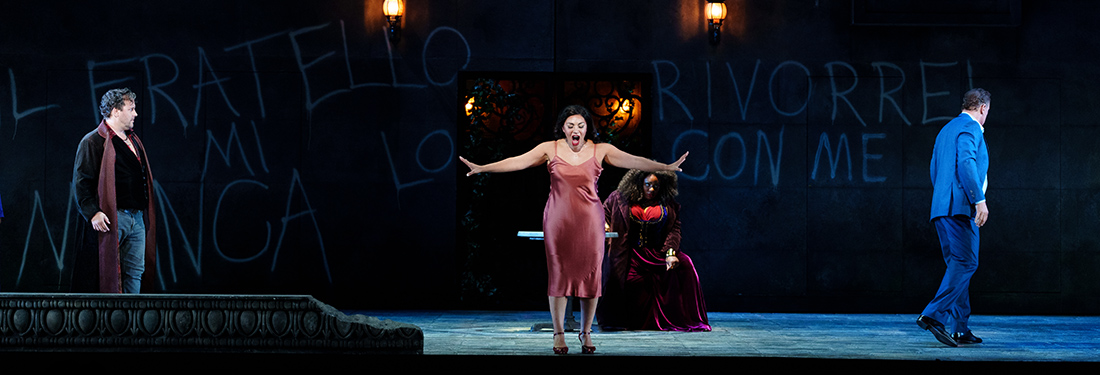
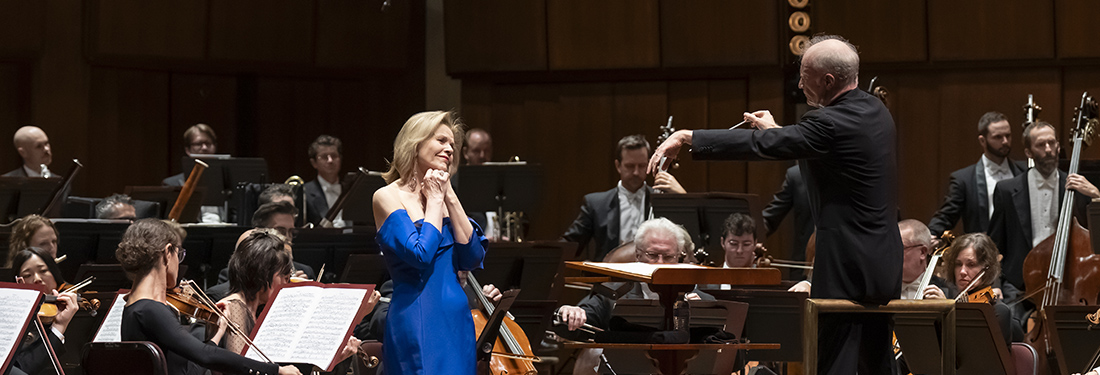
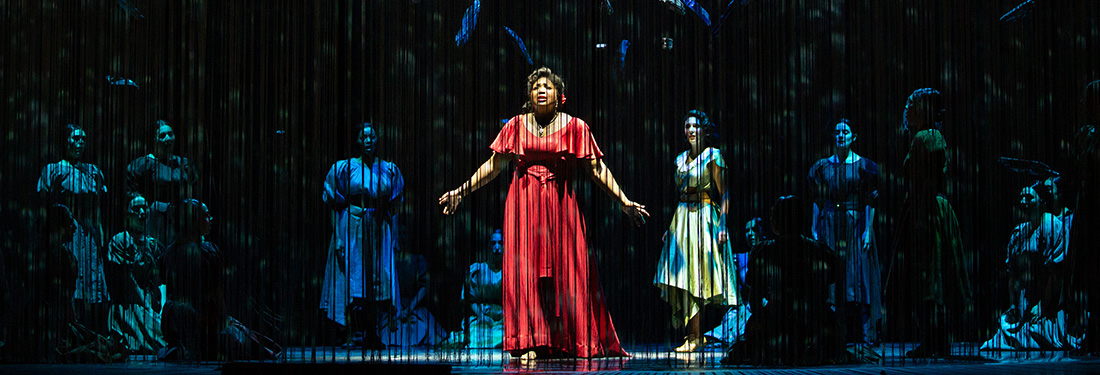
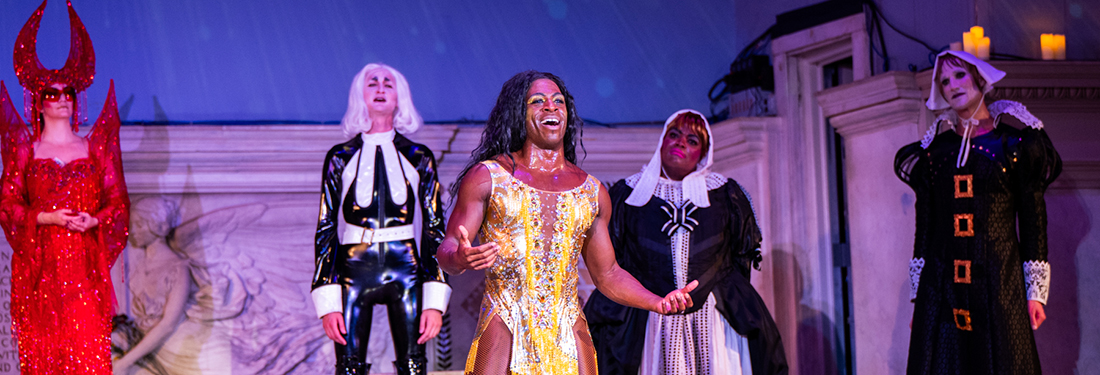
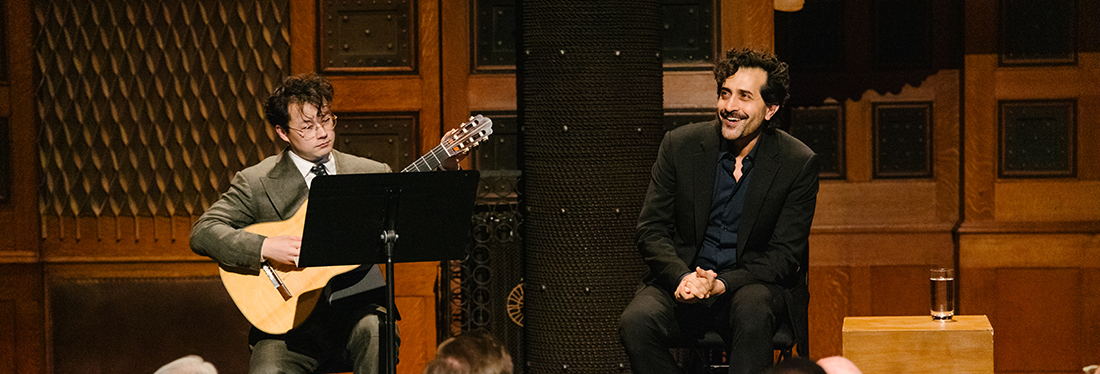
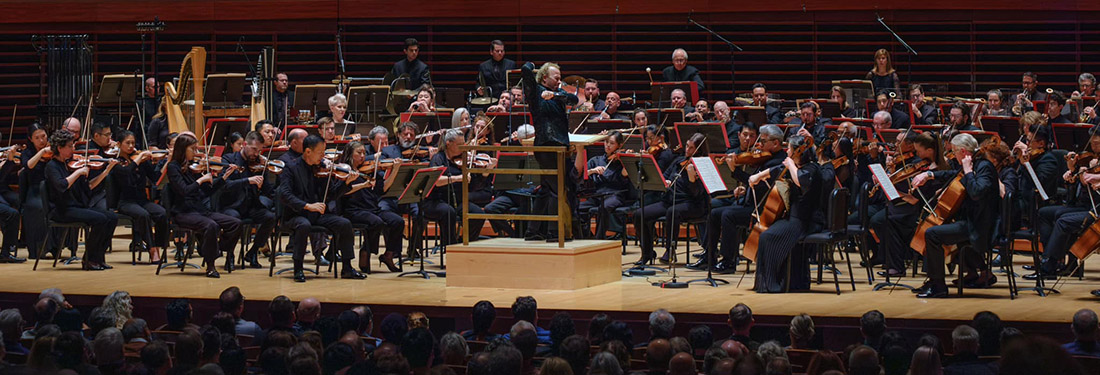
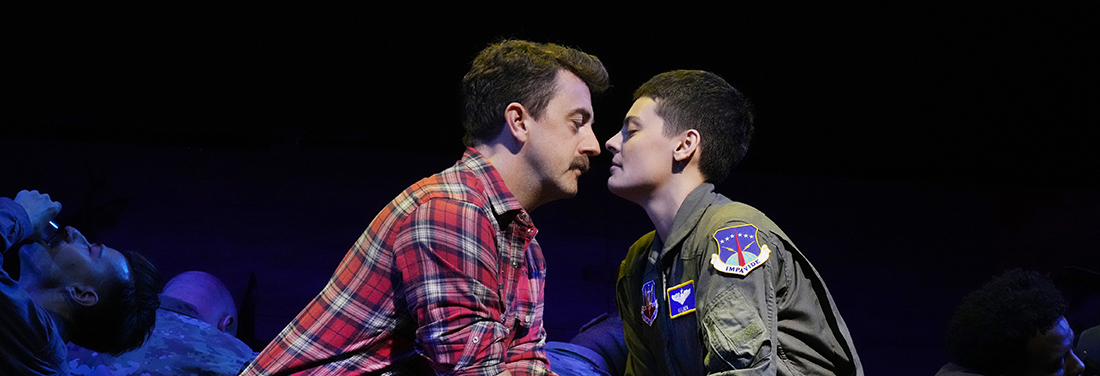
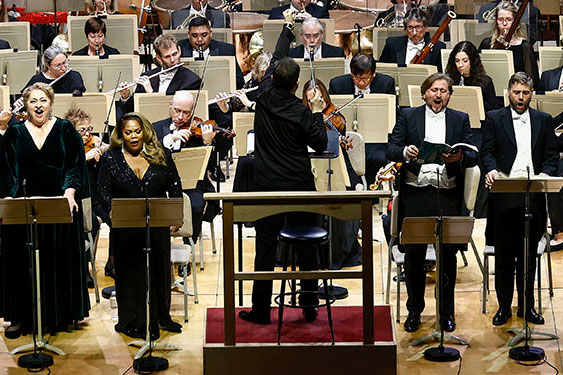
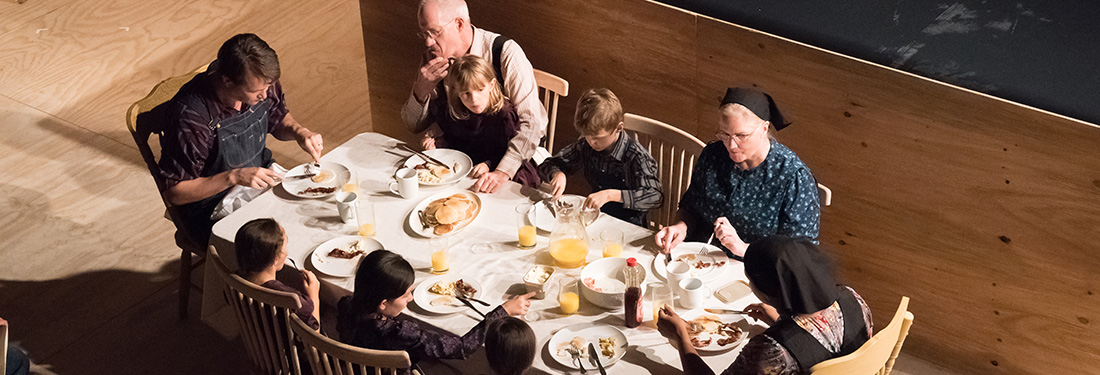
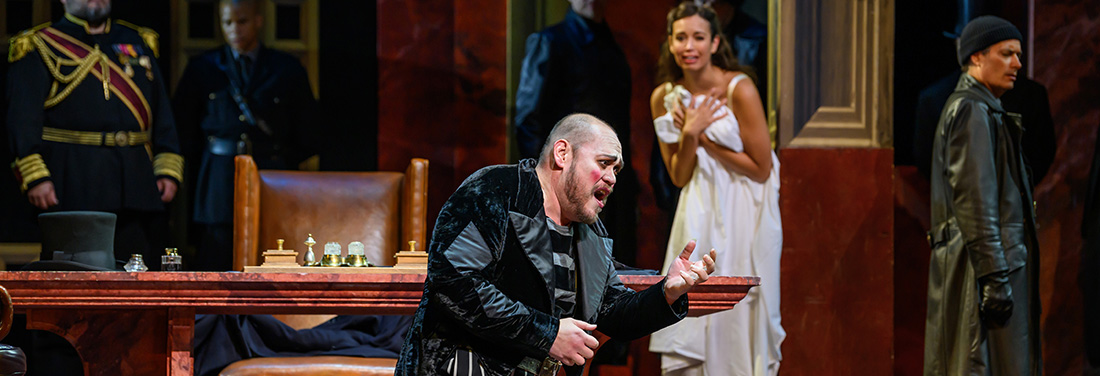
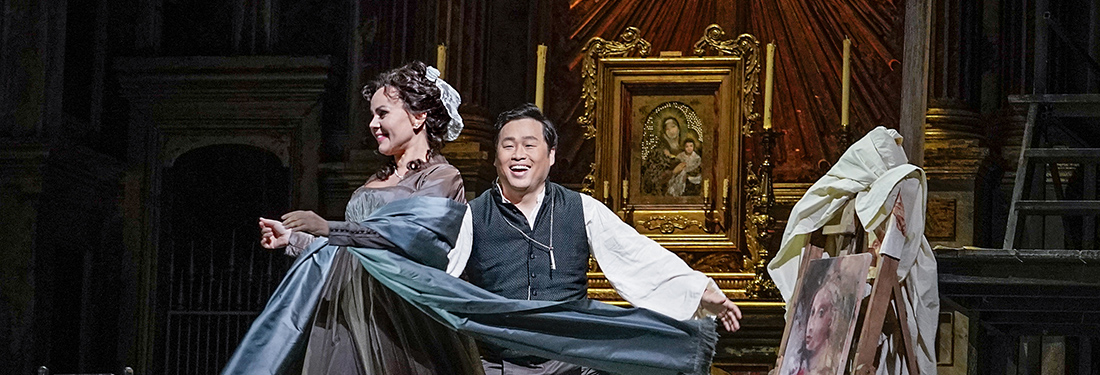
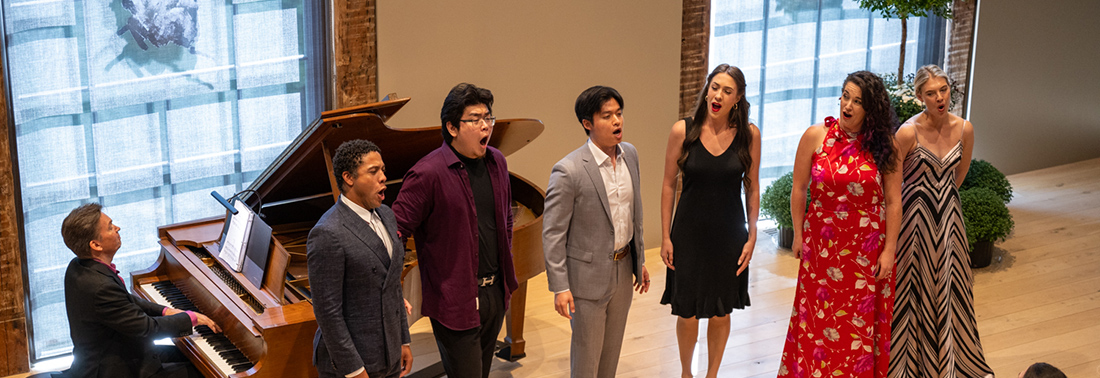
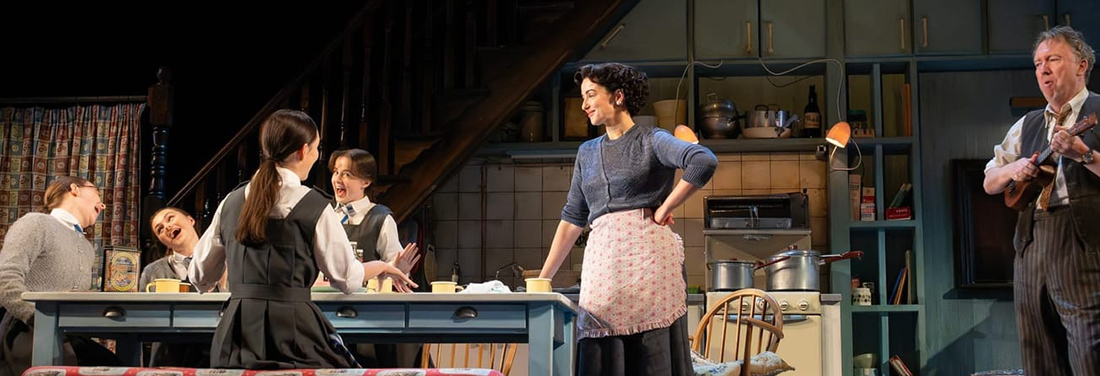
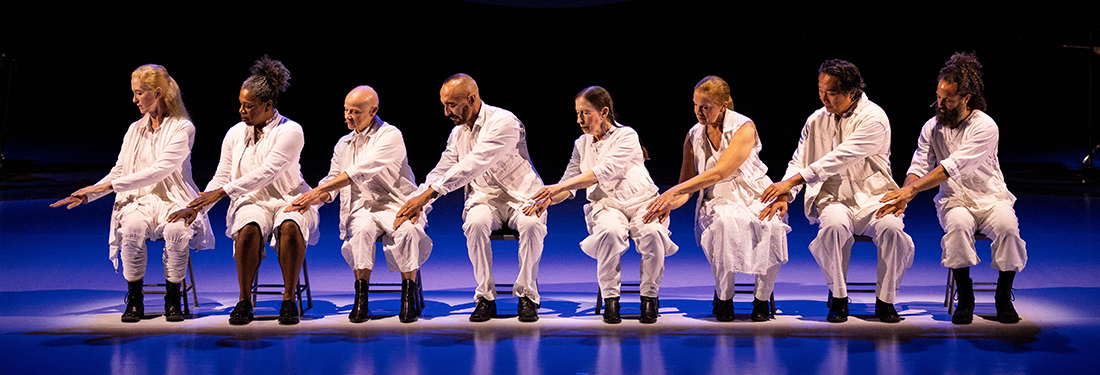
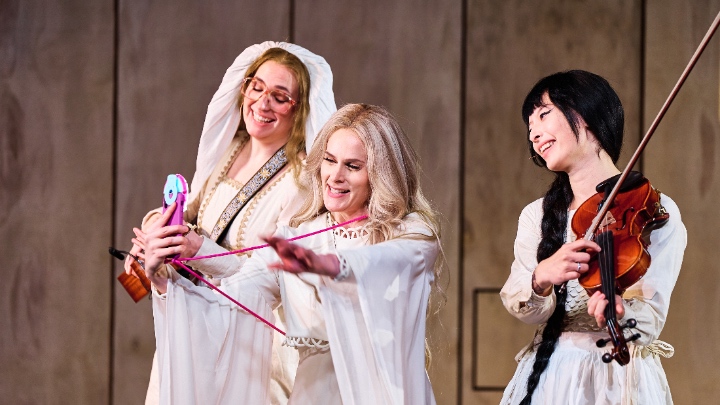
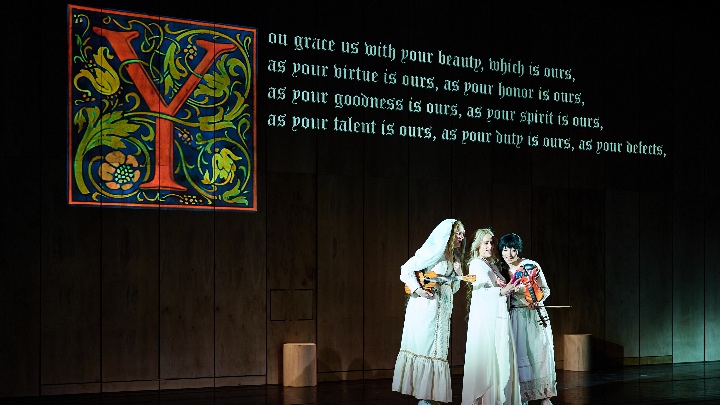
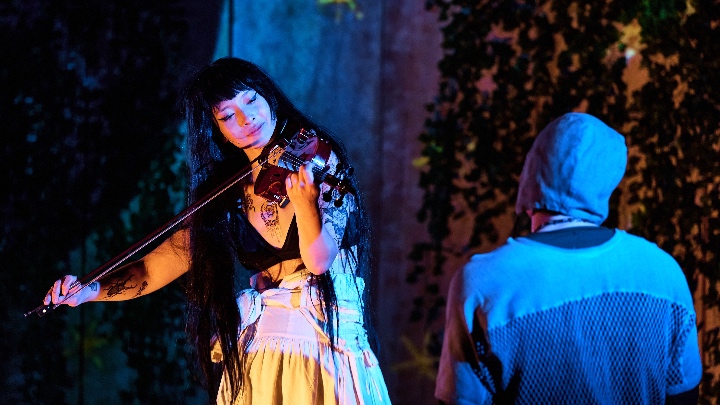
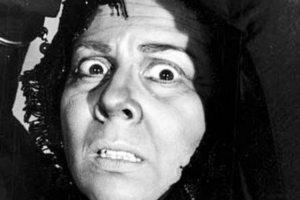
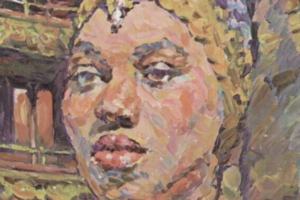
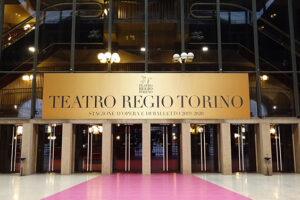
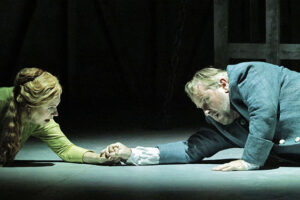

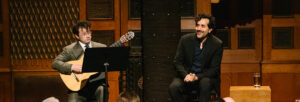
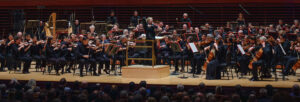



Comments